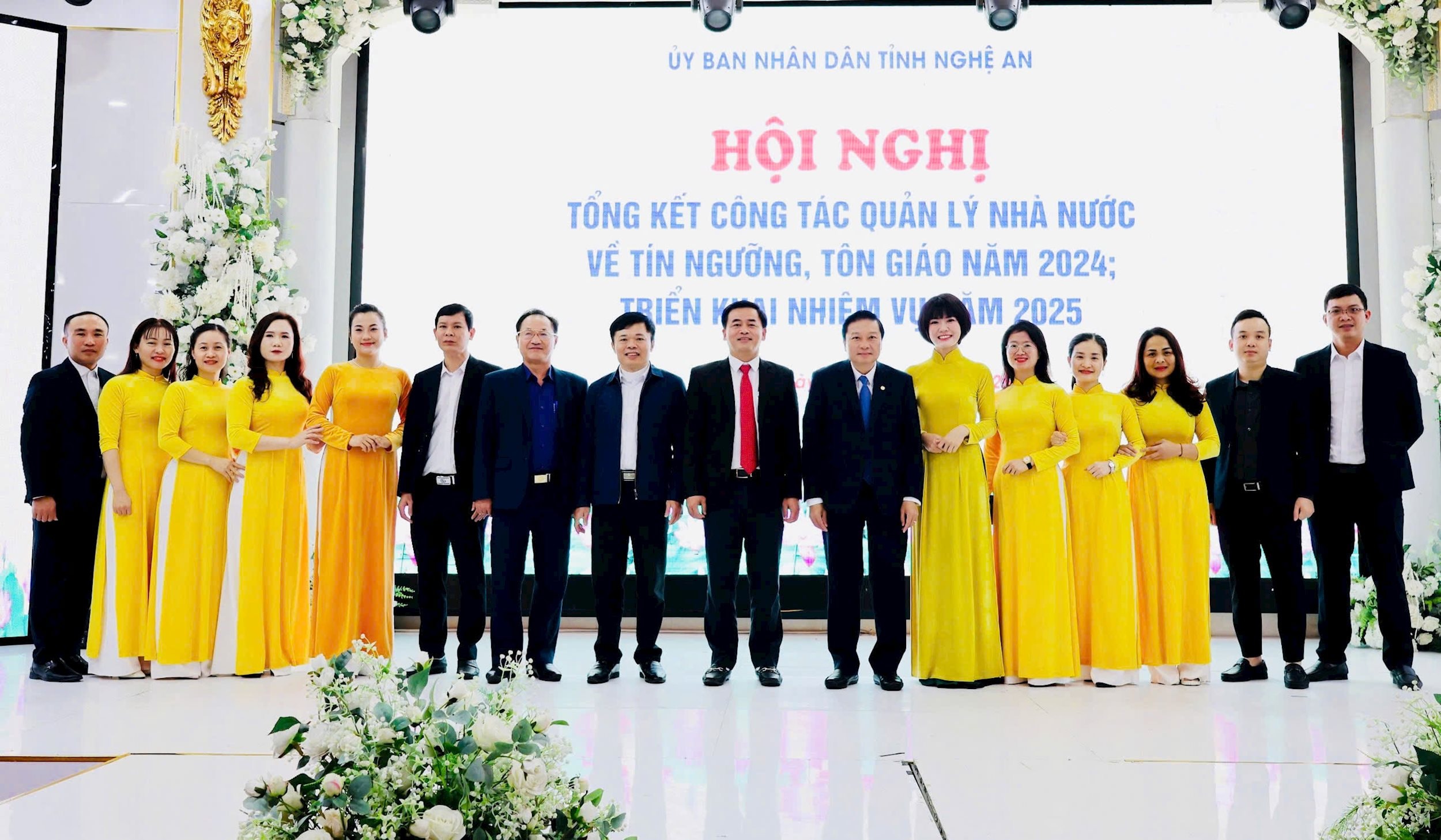
After the resistance war against the French colonialists ended, our country was temporarily divided into two regions, the situation of religious activities had many complicated and unpredictable developments. On June 14, 1955, President Ho Chi Minh signed Decree No. 234/SL promulgating the religious policy of the Government of the Democratic Republic of Vietnam.
Then, on August 2, 1955, the Prime Minister issued Decree No. 566/TTg on the establishment of the Religious Affairs Committee under the Prime Minister's Office (the predecessor of the Government Religious Affairs Committee today) with the function of "Researching plans to implement the Government's policies and guidelines on religious issues, helping the Prime Minister coordinate with central agencies to monitor, guide and urge localities in implementing the Government's policies on religious issues and contacting religious organizations". This event marked the milestone of the birth of the State Management (QLNN) sector on religion in the Socialist State apparatus in our country. Later, in Decision No. 445/QD-TTg dated May 27, 2005, the Prime Minister stipulated that August 2 every year is the "Traditional Day of the State Management Sector on Religion". That event clearly affirmed the position, role and importance of the State management of religion; At the same time, it is also a great source of spiritual encouragement for civil servants, public employees and workers doing this special work across the country.
In line with that historical flow, in Nghe An, the State management of religion has also been gradually formed and developed. Implementing Decree No. 566/ND-TTg of the Government and based on the situation of religious activities in the locality, the Provincial Party Committee, the Administrative Committee (now the People's Committee) of Nghe An province have deployed many activities related to religious work and State management of religion. Advisory agencies for the Party Committee and the government were formed such as the Provincial Party Committee's Religious and Mass Mobilization Committee and the Religious - Ethnic Committee, the Provincial Vietnam Fatherland Front Committee.
Faced with the increasing demands of State management of religion, on July 27, 1992, the People's Committee of Nghe An province issued Decision No. 1314/QD-UB to establish the Government Religious Committee under the Provincial People's Committee; Next, implementing Decree No. 22/2004/ND-CP dated January 12, 2004 of the Government on perfecting the apparatus for religious work under the People's Committees at all levels and Circular No. 25/2004/TT-BNV of the Ministry of Home Affairs, Notice No. 86/TB-TU dated August 4, 2004 of the Standing Committee of Nghe An Provincial Party Committee, the Provincial People's Committee issued Decision No. 100/QD-UB dated September 27, 2004 stipulating the tasks, powers and organizational structure of the Provincial, District, City, Town and Commune, Ward and Town Religious Committees with a large number of followers, with the function of State management of religion within the province, acting as the focal point for coordination with sectors on religious work and religious organizations. Accordingly, the Provincial Religious Committee is a department-level agency; districts and cities with a large number of followers establish a Religious Office to advise on the implementation of State management tasks on religion.
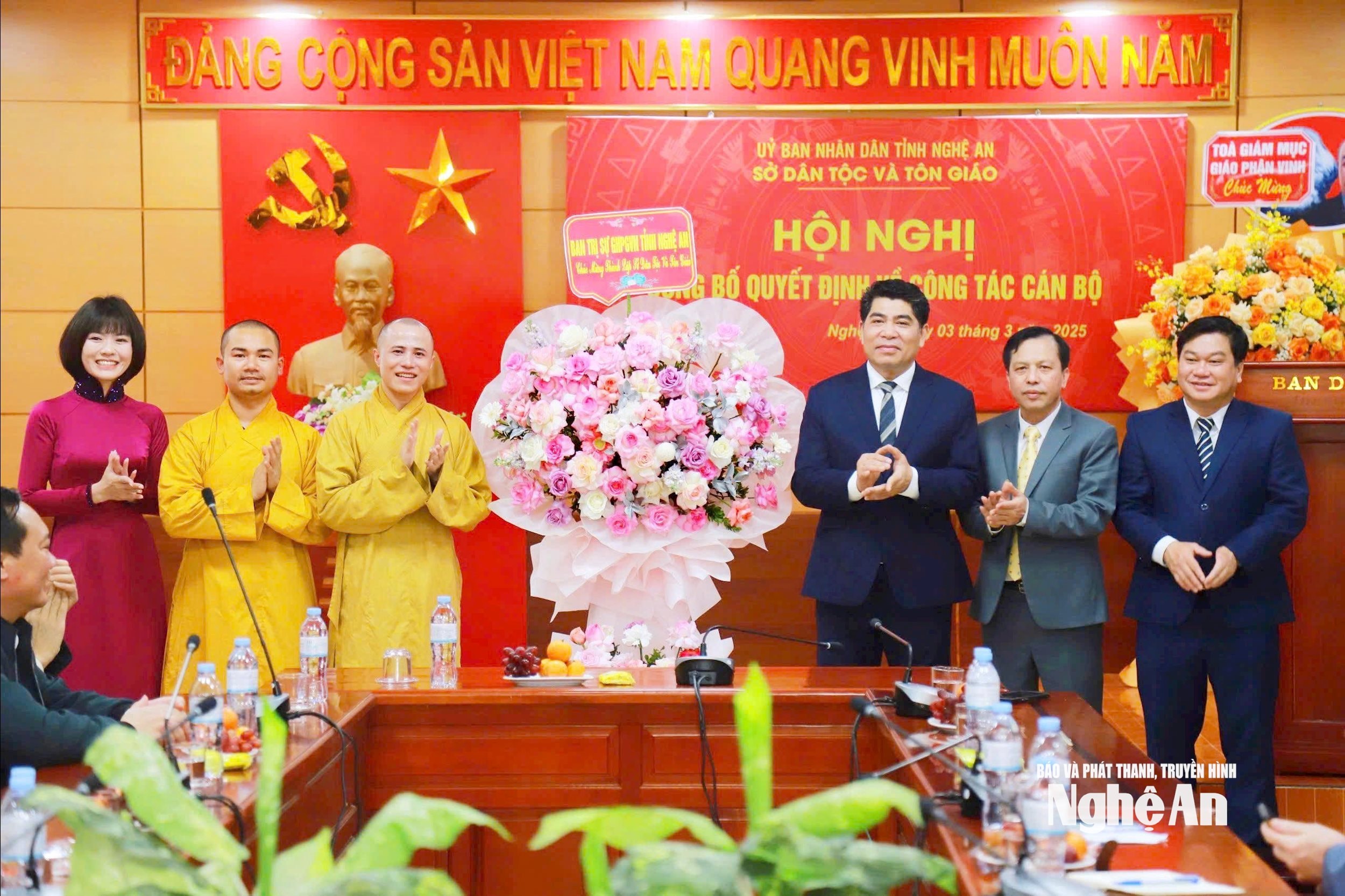
Since June 2008, implementing Decree 13/ND-CP dated February 4, 2008 and Decree 14/ND-CP dated March 4, 2008 of the Government regulating the organization of specialized agencies under the People's Committees of provinces and centrally run cities and specialized agencies under the People's Committees at the district level (old), the Provincial Religious Committee was merged into the Department of Home Affairs to become a department under the department, and the Religious Departments were merged into the Department of Home Affairs of the District People's Committee (old). Continuing to implement the policy of rearranging and streamlining the organizational apparatus of the Politburo, on March 18, 2025, the Provincial People's Committee issued Decision No. 779/QD-UBND on the establishment of the Religious Committee under the Department of Ethnic Minorities and Religions.
During the 70-year journey, a long journey with many ups and downs along with the history of the nation, despite many changes in the organizational structure and apparatus, generations of cadres working in the State management of religion in Nghe An have persistently strived to fulfill their tasks well, becoming a solid bridge between the Party, the State and religions and religious people. Many activities of advising and practicing State management of religion have been implemented drastically, promptly and effectively, both meeting the needs of religious activities, ensuring freedom of belief, promoting the role of religious organizations in political and social life, and strictly managing religious activities in accordance with the provisions of law, promoting the spirit of: "Religion, Nation and Socialism".
Thanks to that, throughout the revolutionary process, religious organizations have always accompanied the nation. In the struggle for national liberation, religious people have contributed human and material resources to the resistance war, many young people in religious areas enthusiastically joined the army, built local militia forces, participated in transportation, and provided reinforcements for the South to defeat the American invaders. Many religious establishments and families of religious people have become meeting places, study classes, and places for soldiers to live, treat and care for wounded soldiers, and shelter for patriotic children. Many typical examples of religious dignitaries such as priests Tran Van Sang, Vuong Dinh Ai, Ho Duc Hoan, Pham Dinh Hau and nun Thich Dieu Niem...
In the construction and development of the country, many new models of religious people have appeared, contributing to creating unique cultural identities in the movement of building new rural areas; uniting to build cultural life in residential areas; participating in building the government; maintaining security, order, and social safety...
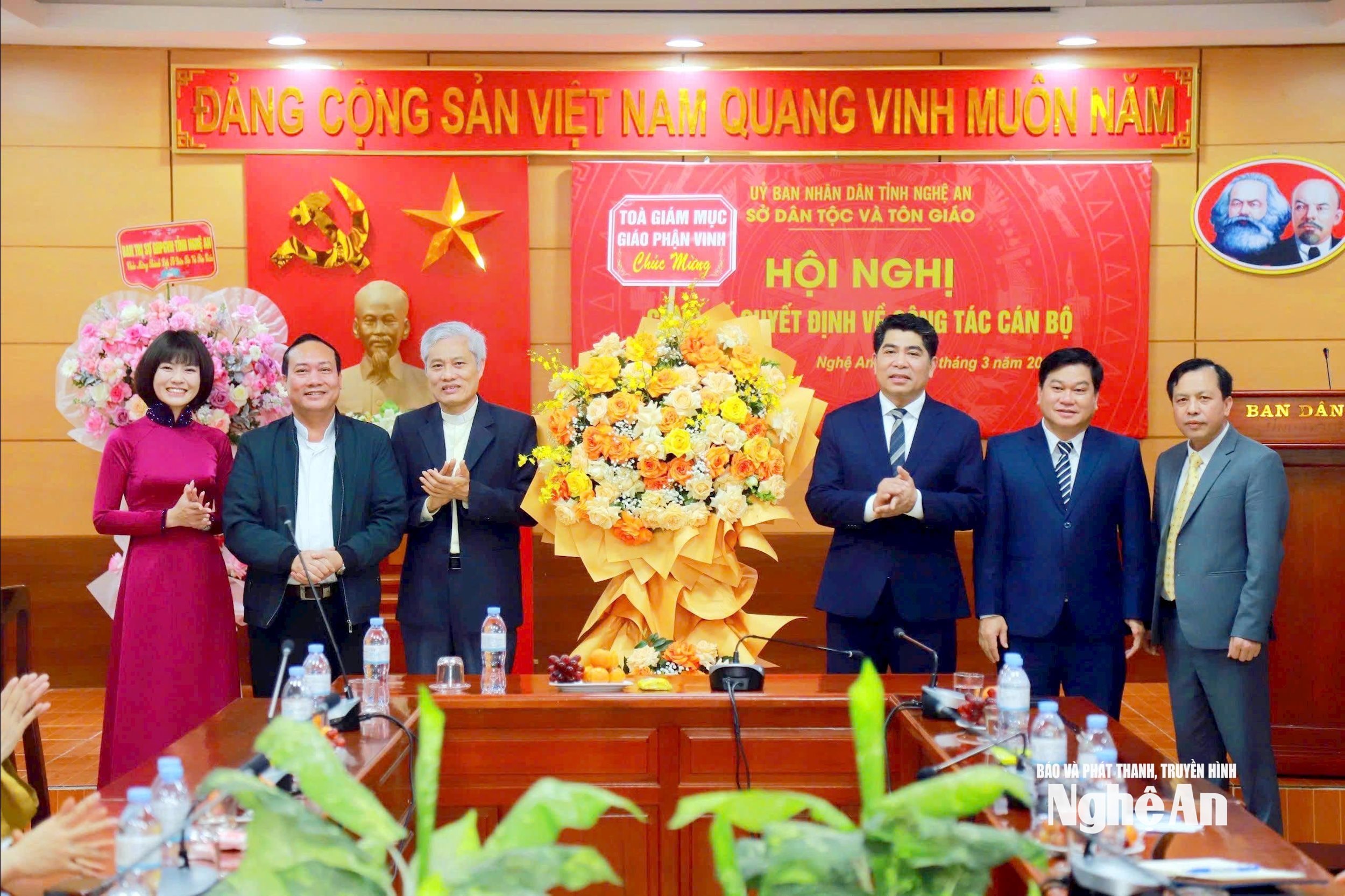
| Nghe An is a land with many early civilizations . imported ideas and religions Confucianism, Buddhism, Catholicism... In the flow of cultural history , Nghe An people have a rich religious and belief life, of which the two main religions are Buddhism and Catholicism with more than 470,000 followers , Buddhists, dignitaries, and officials, accounting for more than 12.71% of the province's population . Religious establishments are spread across 82/130 communes and wards . Up to now, there have been over 300,000 people, living in 363 parish churches, congregations, and religions (15 deaneries, 123 parishes, 240 congregations, 3 legal religious orders out of a total of 26 religious orders present in the province) under the guidance of the Vinh Diocese Bishopric with 2 bishops and 232 priests. Buddhism in Nghe An has a long history . In 2011, the Vietnam Buddhist Sangha of Nghe An province was established. Up to now, the Sangha has about 170,000 Buddhists, living in 76 pagodas and 1 Buddhist hall, under the guidance of 110 monks, nuns and monks. Besides, there are some Protestants, new religious phenomena such as: Falun Gong, Church of God the Mother, Dieu Am Dharma, spiritual beliefs related to President Ho Chi Minh... |
Through management work, religious advisory agencies at all levels have closely followed the locality, grasped the grassroots situation, proposed and recommended to the Party Committee and the government to promptly issue policies, legal documents to create conditions for the effective management of religion. On the one hand, promptly resolved the legitimate needs and aspirations of religious dignitaries and followers, such as: Separating and establishing 53 parishes and 57 parishes of the Catholic Church; establishing the Vietnam Buddhist Sangha of the province; restoring and establishing 76 pagodas and 1 Buddhist temple; 97% of religious establishments were granted land use right certificates; 225 religious works were granted construction permits... Religious ceremonies such as: Holy Year, Christmas, Easter, Buddha's Birthday, Vu Lan, Provincial Buddhist Congress... received special attention from the authorities at all levels, becoming a popular cultural beauty in the community of the whole society.
Responding to the campaigns launched by the provincial government and Fatherland Front, religious organizations in Nghe An have actively contributed both materially and spiritually in charitable activities. In the past 5 years alone, the Catholic community has coordinated with local authorities to participate in many activities such as building and repairing martyrs' cemeteries, supporting the construction of thousands of gratitude houses and solidarity houses; supporting tens of thousands of working days, dozens of tons of rice and many other materials and goods with a total value of 24,372 billion VND... ; The provincial Buddhist Sangha supported more than 260 billion VND, built over 200 solidarity houses, 5 bridges, 5 schools, awarded more than 1,000 scholarships; millions of bowls of charity porridge, donated more than 1,000 units of blood each year; mobilized monks, nuns, and Buddhists to contribute to funds such as: Fund for the Poor; Encouragement of Learning, Encouragement of Talent; “Repaying gratitude”… creates a strong change in the great national unity bloc.
In addition, many activities supporting religious diplomacy were carried out, such as: Welcoming and working with the EU Political Counselor delegation; the delegation of Archbishop Marek Zalewski, the first Permanent Representative of the Holy See in Vietnam; supporting the Executive Committee of the Vietnam Buddhist Sangha in the province to organize friendly meetings and sign agreements with the Executive Committee of the Buddhist Sangha in Xieng Khouang province, Laos... Thereby, providing information about the religious situation in Nghe An for the international community to understand and support in foreign affairs activities.
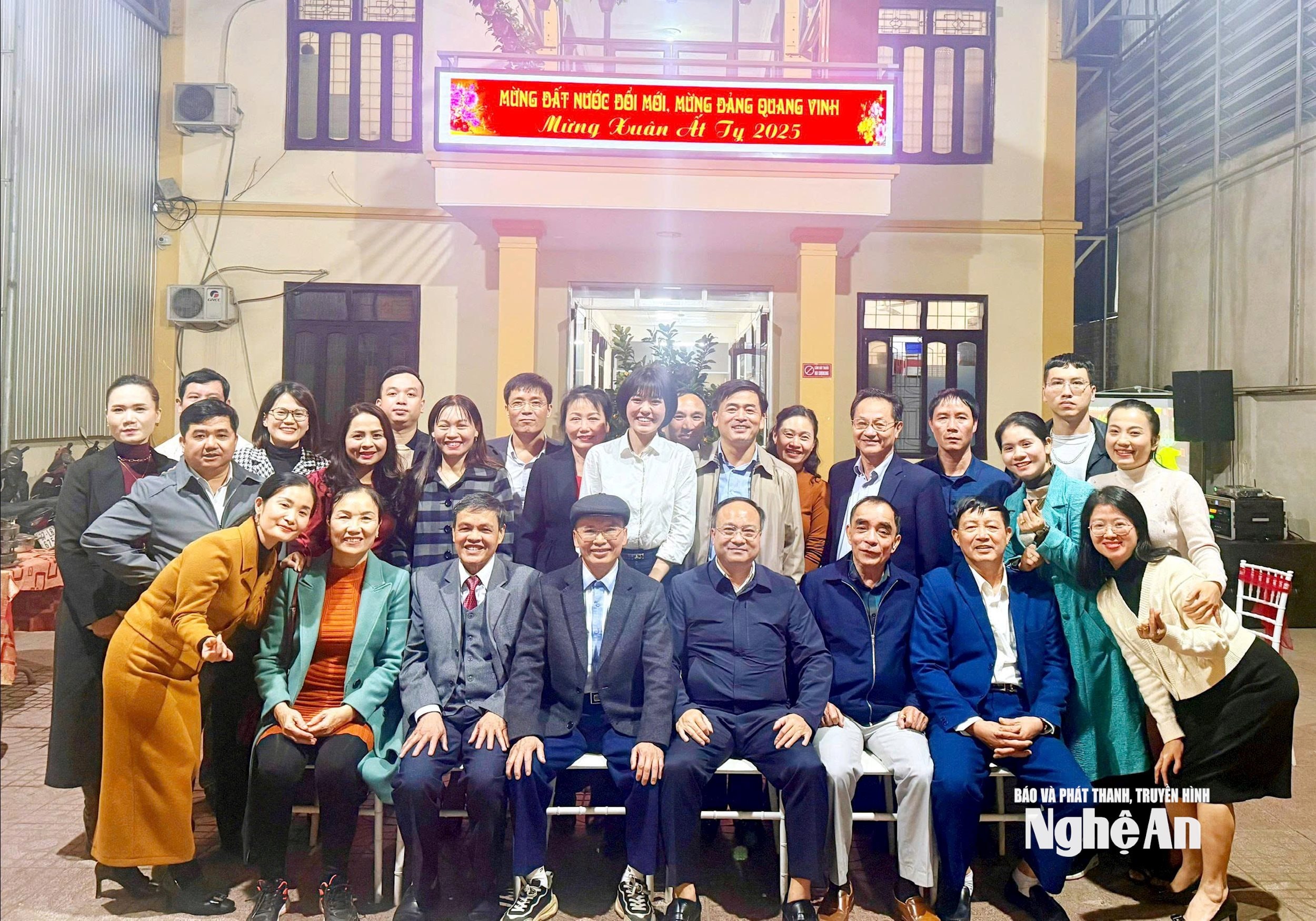
Religion is a special field of social life that places high and comprehensive requirements on those working in state management... In addition to fully implementing the provisions of the law, they must also have qualities, strong political will and comprehensive knowledge, and be able to dialogue and persuade not only religious organizations and individuals but also the masses of believers and religious followers. Officials working in state management of religion must spend more time on work than those in other sectors and professions, because religious activities and events often take place on holidays, New Year's Day, and outside of working hours.
In the context of increasingly deep international integration and the current operation of two-level local governments, the State management of religion is facing new requirements. Ahead of them is a glorious path but also full of hardships, difficulties and pressures. In them, there is always a flame of faith, passion, dedication, perseverance, and silent sacrifice to create sustainable values for society.
70 years - a very proud journey. The staff of the State management of religion in Nghe An province will continue to strive to be a strong bridge in the good relationship between the Party Committee, the government, the people with religious churches and the community of Catholics, monks, nuns, and Buddhists, in order to further promote the role of religious organizations in the common development of the province and the country. The State management of religion in Nghe An province has been and continues to affirm its indispensable position and role in the political system, contributing to firmly consolidating the great national unity bloc, entering a new era - the era of national development./.
Source: https://baonghean.vn/70-nam-nganh-quan-ly-nha-nuoc-ve-ton-giao-ben-bi-kien-tao-gia-tri-khang-dinh-vi-tri-vai-tro-10303347.html



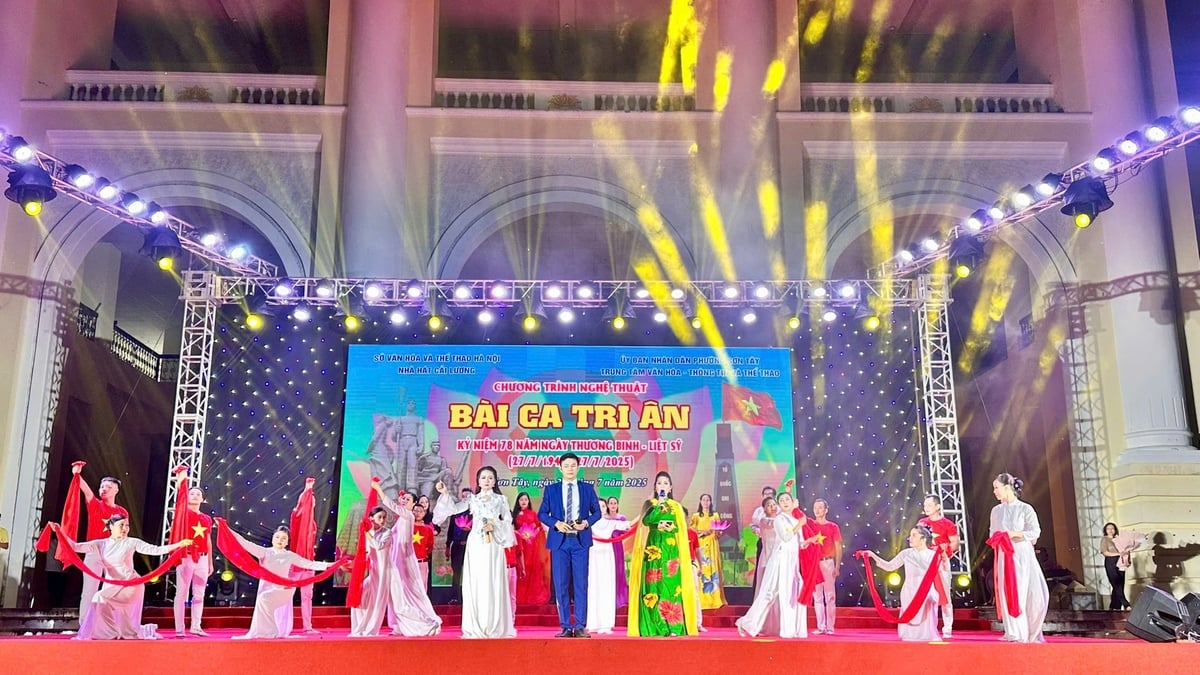
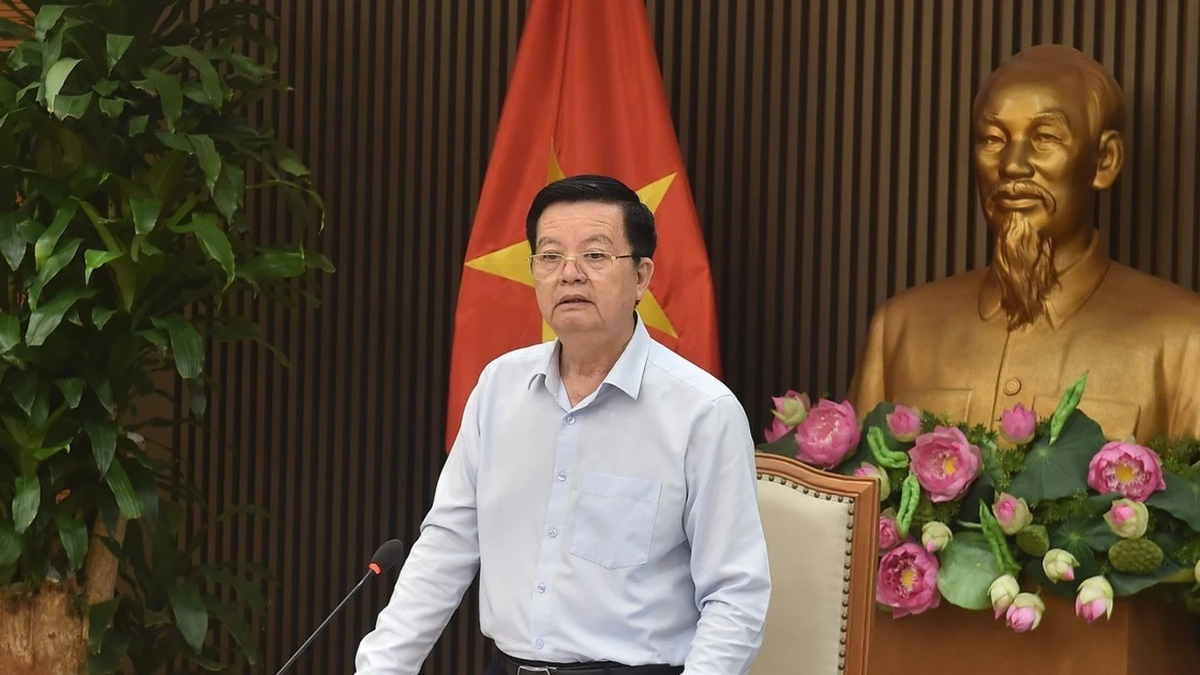


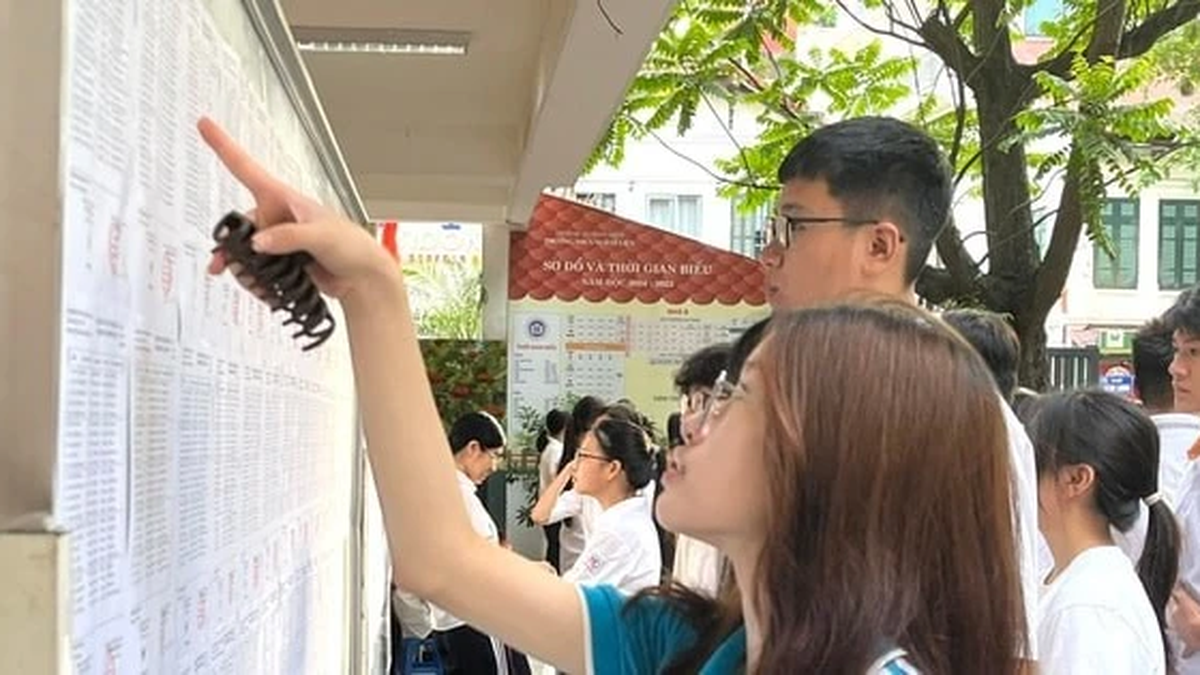
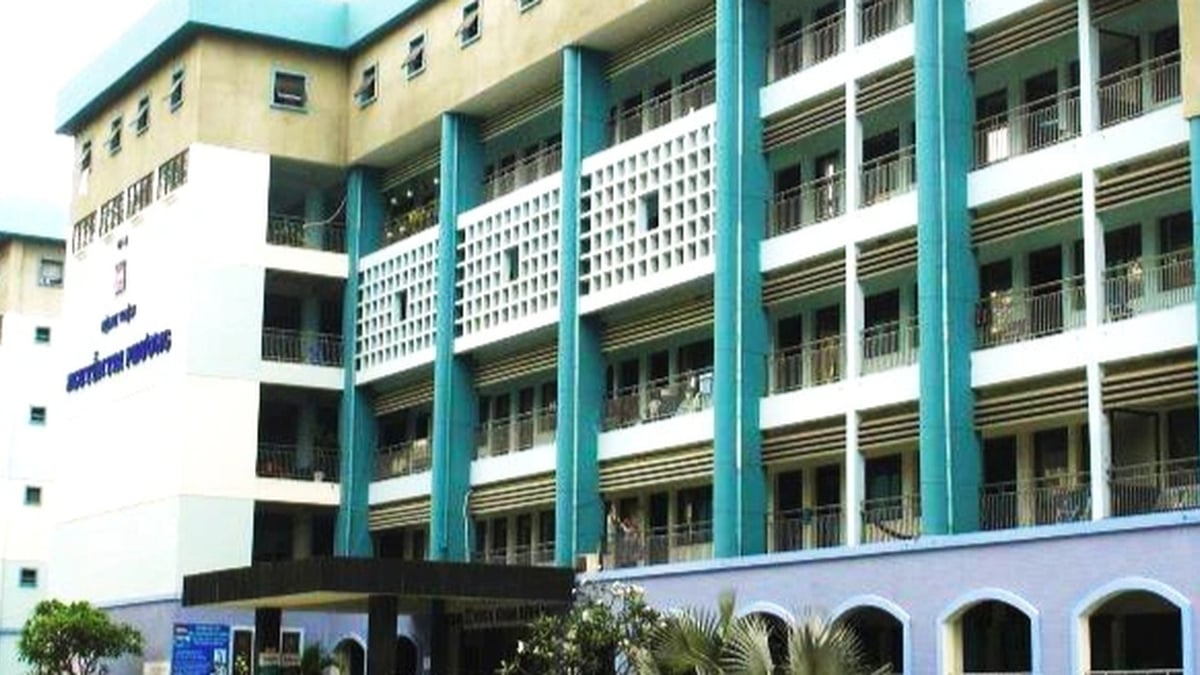















![[Photo] National Assembly Chairman attends the seminar "Building and operating an international financial center and recommendations for Vietnam"](https://vphoto.vietnam.vn/thumb/1200x675/vietnam/resource/IMAGE/2025/7/28/76393436936e457db31ec84433289f72)












































































Comment (0)